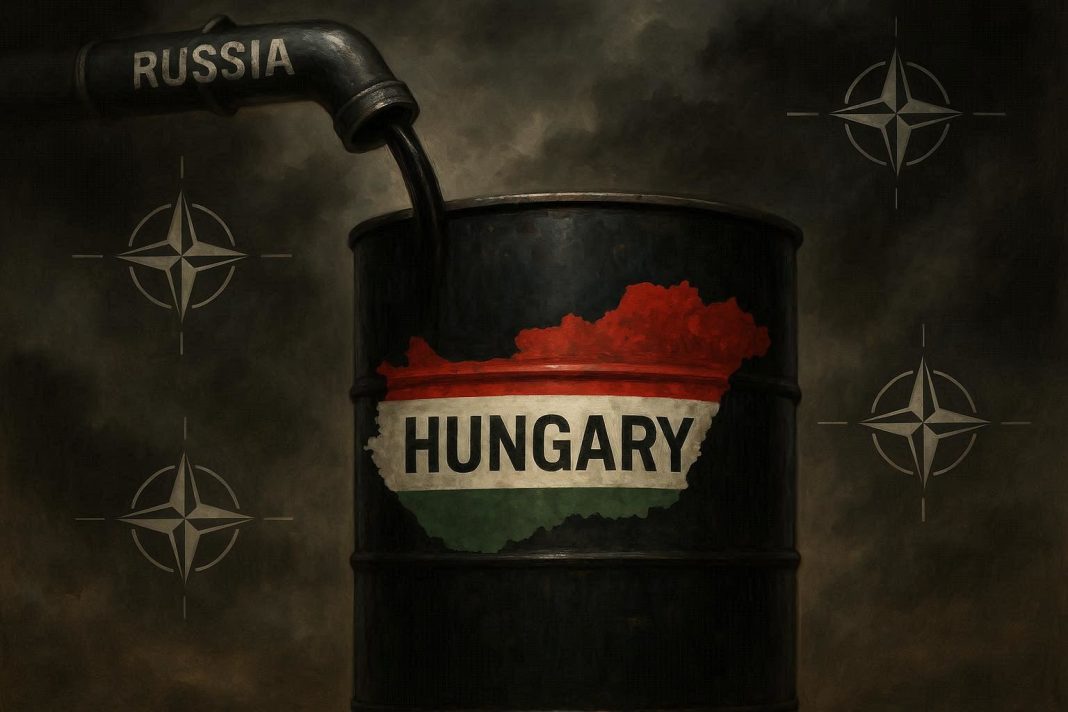Three years into Russia’s war in Ukraine, one NATO member continues to rely on Moscow for most of its energy needs. Hungary, led by Prime Minister Viktor Orbán, now sources more than 80 percent of its crude oil from Russia. This makes it the most Russia-dependent economy inside the NATO alliance.
Hungary Shows Heavy Dependence on Russian Oil
The irony is stark when compared to U.S. policies elsewhere. Former U.S. President Donald Trump imposed steep tariffs on India for buying Russian oil and weapons. These tariffs included a 25 percent penalty on Russian-linked transactions and a 50 percent duty on many Indian goods. Washington insisted that such purchases fuel Moscow’s war machine.
New Delhi, however, called the tariffs unfair. Indian officials argued that the country must protect its 1.4 billion citizens by securing the “best deal” on energy. Foreign Minister S. Jaishankar made the case that energy security cannot be sacrificed for politics. He told the G20 meeting in South Africa that making oil and gas more uncertain in fragile times only harms global stability.
Shocking Response: China Strikes Back at Trump’s Tariff Threat Over Russian Oil
Meanwhile, Hungary’s exposure to Russian energy has grown. An Atlantic Council report from September 2 revealed that Budapest’s crude imports from Moscow increased from 61 percent before the invasion to 86 percent today. Neighboring Slovakia is also highly dependent, sourcing nearly all of its crude from Russia. Both countries remain connected to Moscow through the TurkStream pipeline, which delivers natural gas despite the European Union’s pledge to phase out Russian fossil fuels in 2022.
Trump’s Criticism of NATO’s Energy Policy
Donald Trump has been quick to highlight Hungary’s behavior. Speaking at the United Nations General Assembly earlier this month, he called NATO’s energy policies “self-defeating.”
According to Trump, China and India may be the largest buyers of Russian oil, but NATO’s failure to cut off Russian energy was even more troubling. He told world leaders, “They are funding the war against themselves. Who the hell ever heard of that one?”
Trump argued that sanctions on Moscow are meaningless without unity. On his social media platform, Truth Social, he wrote that he would impose major sanctions only when all NATO nations agree to stop buying oil from Russia. For Trump, Hungary’s contracts with Moscow are not just a policy choice but a betrayal of NATO’s collective purpose.
India-US trade talks resume after steep tariffs linked to Russian oil purchases
Hungary, however, claims it has little choice. Foreign Minister Péter Szijjártó said the country is tied to Soviet-era infrastructure. In his words, “It can be nice to dream about buying oil and gas from somewhere else, but we can only buy from where we have infrastructure.”
Hungary’s main dependence comes from the Druzhba pipeline, also called the “Friendship” pipeline, which carries five million tonnes of crude each year from Russia. This infrastructure makes Moscow its dominant supplier. Orbán’s government has even vetoed several EU-wide efforts to block Russian oil imports, saying such moves would destroy Hungary’s energy security.
Alternatives Exist but Hungary Refuses Change
Energy experts disagree with Budapest’s claim that it has no options. Researchers from the Center for the Study of Democracy (CSD) and the Center for Research on Energy and Clean Air (CREA) point out that alternatives are available.
For example, Hungary could use the Adria pipeline through Croatia, which has extra capacity. It could also import liquefied natural gas through terminals in Germany, Poland, Italy, or Greece.
Cost is not the main problem either. Since the war began, Hungary and Slovakia together have paid Moscow around $6 billion in tax revenues for crude oil. Experts note that this amount could fund thousands of Russian cruise missiles. Despite paying billions, consumers in both countries still face some of the highest energy prices in the European Union.
Slovakia has shown some willingness to change. Its Economy Minister Denisa Saková confirmed talks with Washington to explore alternative supply routes. She explained that if another route and enough transmission capacity are secured, Slovakia has no problem diversifying.
Alarming surge in mysterious Russian oil deaths sparks fears of secret pressure plots
Hungary has chosen a different path. Even after a long-term oil contract with Russia expired in June 2025, Orbán’s government continued to purchase Russian oil. Whether through renewed agreements or spot market buys, Budapest has kept its reliance intact.
Domestic politics play a big role in this decision. With elections approaching, Orbán focuses on keeping energy prices stable for Hungarian households. He presents himself as a protector of everyday citizens against pressure from Brussels and Washington. This strategy has allowed him to use Hungary’s veto power within the EU to soften sanctions and secure concessions.
By relying so heavily on Russian oil, Hungary has paid billions into Moscow’s budget. According to reports, this money directly sustains Russia’s ability to continue the war in Ukraine. NATO, meanwhile, faces the uncomfortable reality that one of its members is keeping Russia’s energy lifeline open.

